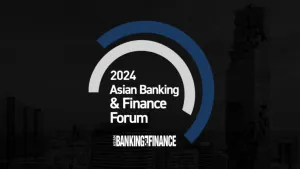
Chinese banks struggling with heightened risks
No thanks to the shadow banking system having assets equal to 82% of GDP.
Moody's Investors Service says that Chinese banks are facing increasing risks as a result of China's economic slowdown, rising leverage in the system, and financial sector interconnectedness.
"The system is seeing an increasing level of nonperforming loans (NPLs) -- which were 1.76% of gross loans at end-September 2016, up from 1.67% at end-2015 and 1.25% at end-2014 -- while credit costs are also rising," says Sean Hung, a Moody's Assistant Vice President and Analyst.
"The deterioration in the banks' asset quality is taking place against the backdrop of a deceleration of GDP growth and rising financial leverage. The liabilities of state- owned enterprises (SOEs) increased and reached nearly 120% of gross domestic product (GDP) at end-September 2016," says Hung.
Here's more from Moody's:
Hung was speaking at a presentation -- "Risks of Banking Industry and Costs of Corporate Deleveraging" -- which was held as part of Moody's 2017 China Credit Outlook Conference: Managing Risks, Maintaining Growth and Advancing Reform in Shenzhen on 13 December. The Beijing and Shanghai versions of the conference took place on 5 December and 8 December.
"Furthermore, another source of risk is the rising level of interconnectedness that is occurring between the formal banking system and the shadow banking system, which has doubled in size these last 5 years with its assets equal to 82% of GDP at the end of June 2016," adds Hung.
In this context, the level of outstanding wealth management products issued and distributed by banks-- as part of the shadow banking component -- has continued to expand, totaling 37% of GDP at the end of June 2016. Separately, the share of wholesale investors in wealth management product increased to 41% at the end of June 2016 from 32% at the end of 2014.
Meanwhile, midsize and small banks are also increasingly relying on wholesale funding to support their longer-term investments, challenging their liquidity management. However, overall liquidity for the banking system will remain stable, although there are some constraints on both monetary policy loosening and interest rate hikes.
On the issue of corporate deleveraging, Moody's says that it will help address an unsustainable trend of rising debt, but it also increases adjustment risk for the banks in the near term by raising corporate defaults and loan restructurings.
Secondly, the banks may lose their seniority in claim on company assets if they have swapped debt for equity, a risk that in the case of unviable companies will make their collapse more expensive for the banks involved. However, market-based implementation would limit risks for the banks.
The Moody's presentation also notes the role of distressed asset management companies in resolving bad debt, and which have an increasing range of tool available to support their business.













 Advertise
Advertise










